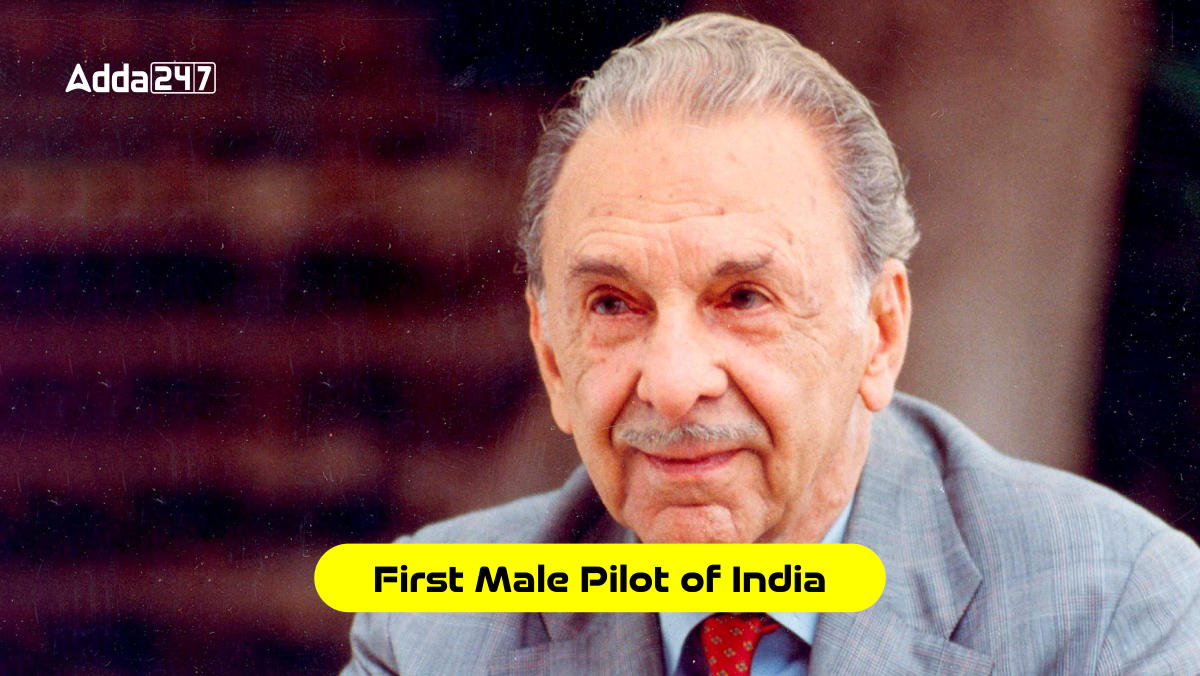Jehangir Ratanji Dadabhoy Tata, popularly known as J.R.D. Tata, was a visionary Indian businessman and aviator pioneer who left an indelible mark on India’s industrial landscape as first male pilot of India. Born on 29th July, 1904, in Paris, France, to a wealthy Indian family, Tata’s life journey led him to become India’s first male pilot and his contributions to aviation and various industries played a pivotal role in shaping modern India.
Early Life of J.R.D. Tata
J.R.D. Tata was born into privilege, but his early years were marked by a unique blend of influences. His mother was French and he spent a significant part of his childhood in France, where he developed a deep connection with the country and its language. It was during a summer vacation in Franch that Tata had a fateful encounter with Louis Bleriot, an aviation pioneer. This meeting ignited a lifelong passion for aircraft and aviation that would define his legacy.
Educational Journey of First Male Pilot of India
Tata’s educational journey took him to various corners of the world. He studied in France, Japan and England. However, he had initially planned to study engineering at the University of Cambridge. Fate had different plans for him, as he was called back to India in 1925 to assumer his responsibilities in the Tata family business, established by his great-grandfather in 1868.
Aviation Enthusiast
Tata’s interest in aviation only grew stronger over the years. In 1929, he took a significant step by surrendering his French citizenship and in the same year, he earned the distinction of becoming first male pilot of India. This achievement marked a significant milestone in India’s aviation history.
Tata’s Contributions to Indian Aviation
In 1932, J.R.D. Tata took a remarkable initiative by establishing Tata Air Mail, a courier service that connected key Indian cities like Karachi, Ahmedabad, Bombay (now Mumbai) and Madras (now Chennai). This service eventually evolved into Tata Airlines, India’s first domestic carrier. In 1946, he rebranded the airline as Air India, laying the foundation for India’s national carrier.
Diversifying the Tata Group
In 1938, at the young age of 34, Tata assumed the role of Chairman of the Tata Group, one of India’s largest business conglomerates. Under his leadership, the group underwent a dramatic transformation and diversification. He expanded its interests into various sectors, including steel, power, hotels, chemicals, automobiles, pharmaceuticals, financial services and information technology. This diversification not only enriched the group but also contributed significantly to India’s industrial growth.
Beyond Business
J.R.D. Tata’s contributions extended beyond the corporate world. He played a crucial role in establishing several institutions to promote scientific, medical and artistic endeavors in India. Some of these institutions include the Tata Institute of Fundamental Research, Tata Memorial Hospital, the Tata Institute of Social Sciences, the National Institute of Advanced Sciences and the National Centre for the Performing Arts. His advocacy for family planning, even when it was a politically unpopular stance, led to the creation of the Family Planning Foundation in 1971.
Honors and Awards
J.R.D. Tata has received several honors and awards, these are:
- Honorary Rank in Indian Air Force:
- Conferred the Honorary rank of Group Captain by the Indian Air Force in 1948.
- Promoted to the rank of Air Commodore on 4th October 1966.
- Further promoted to the rank of Air Vice Marshal on 1st April 1974.
- International Aviation Awards:
- Tony Jannus Award in March 1979.
- Gold Air Medal of the Federation Aeronautique Internationale in 1985.
- Edward Warner Award of the International Civil Aviation Organization, Canada in 1986.
- Daniel Guggenheim Medal in 1988.
- National Awards and Honors:
- Padma Vibhushan in 1955
- French Legion of Honor in 1983
- Bharat Ratna in 1992
Death and Legacy
J.R.D. Tata’s legacy endures in India’s aviation industry, business landscape and social welfare initiatives. He passed away on 29th November 1993, in Geneva, Switzerland, at the age of 89. His impact was so significant that the Indian Parliament adjourned in his memory, a rare honor for a non-member of parliament. He was buried at the Pere Lachaise Cemetery in Paris.
Find More General Studies News Here



 Which District of Madhya Pradesh is Famo...
Which District of Madhya Pradesh is Famo...
 Diwali 2024 Date and Significance: Is De...
Diwali 2024 Date and Significance: Is De...
 Which Indian City is Known as the Scotla...
Which Indian City is Known as the Scotla...

